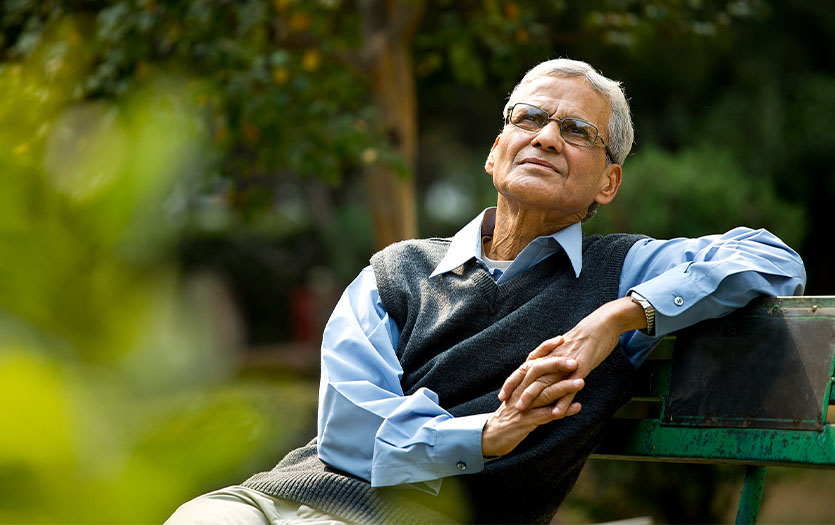
On December 17, my mother, Marianne, died after a beautiful, long life filled with love, blessings, and many challenges. As family and friends, we celebrated her, pausing to reflect on lessons she had taught us along the way. She had a deep faith and instilled a desire to help and bring hope to others. When I was young, I recall her whispering a beautiful guardian angel prayer at bedtime each night and singing a goodnight song as she stepped down the staircase. I imagine the stress of raising six children and how tired she must have been.
Toward the end of my mother’s life, she received hospice care in my brother’s home. My other siblings tended to her daily needs, and the 22 grandkids and 34 great grandkids would visit frequently, but it was my youngest brother who had the privilege of gently lifting her into bed each night. He would then kneel by her bedside and whisper the same prayer that she had shared with each of us during our youth. She would close her eyes and listen and sleep very soundly. He prayed:
Angel of God,
my guardian dear,
to whom God's love commits me here,
ever this day,
be at my side
to light and guard,
to rule and guide.
Amen.
One evening my mother opened her eyes after the prayer and said she had seen the guardian angel. She whispered that life would not be much longer. And she was right. She felt safe, secure, warm, and loved.
After watching my mother pass to new life, I have more perspective and a bigger picture of changing life seasons. I am so thankful for the lessons she has taught me with her life, but perhaps as much or more in the whispers of her dying and death. Mindfulness starts with a specific intention to stay present in a current moment. Sometimes our emotions (fear, anger, loss, grief, confusion, etc.) and overthinking mind get in the way of experiencing the now. Practicing the art of mindfulness is sensory awareness (what we can see, hear, touch, taste, smell and feel) to be fully present to our life. We practice this noticing with compassion, openness, and nonjudgmental curiosity.
Here are 10 tips to practice formally and informally to cultivate awareness of the full spectrum of our life chapters.
- Enjoy awareness of seasonal patterns. Take time to appreciate the move from winter and cold to spring and new. Breathe the air of transition and enjoy a bit longer day.
- Notice the changing weather. Watch the rain, snow, fog, sunshine and breeze. Bring an awareness of the shift that is unfolding in the moment as a gentle reminder that life stressors ebb and flow and rainbows are sure to follow.
- Be captivated by a sunrise or sunset. Watching and noticing the dance of this pattern has beauty, majesty and healing in the stillness.
- Actively listen to children’s voices and singing. Joy and exuberance can be found in the pep and step of their youth before they are tainted with the fears of our world. Soak in the beauty of a baby or small child. Breathe innocence.
- Pause before meals. Notice color, texture, temperature, and internal sensations of hunger, and thirst. Savor the bite, bless the moment, and notice the eyes of those gathered at the table to join with us.
- Journal the pause. Partake in a sip of mint herbal tea, the essence of a fragrant candle, and reflect on the moments that you don’t want to forget. Journaling helps to bring a bit more intention to our desires to be more present in life’s passing moments.
- Take a yoga, tai chi, qigong or meditation class. Formal practice of mindfulness is a must for reminding ourselves how easy it is to be hijacked by the stress of our lives.
- Be intentional about what you whisper into the ears of children. Cultivate awareness of the hope you bring in a fear obsessed world. What are the prayers, songs, and memories that you instill to those you influence?
- Read a poem (my favorites are Rumi and Mary Oliver) say a prayer, breathe your body. Pause. I mean it … truly pause.
- Notice life to death patterns. Respect, honor, and ask what life lessons our parents, grandparents and elders have learned along the way that we should hope to remember. Seek to understand and soak in wisdom.
Try a guided meditation with Dr. Johnson.
Find a relaxing space and follow along as he leads you through a brief mindfulness practice*.
Mindfulness-based stress reduction practice has been extensively researched and proven helpful for coping with changes, grief, healthy eating patterns, pain, anxiety, depression and many other chronic disease and autoimmune disorders. For more on stress management programs or 1:1 stress coaching with Dr. Dave contact the Parkview Center for Healthy Living at (260) 672-6500. He also provides on-site guidance for teambuilding, emotional intelligence, transformational leadership, among other topics. To learn more about Employees Assistance Programs for your company, call Business Development at (260) 373-9013.
*Dr. Johnson cautions anyone practicing this meditation to avoid doing so while driving or doing any other activity that requires your absolute concentration.
If you enjoyed this post from Dr. Johnson and would like to read more, take a look at Learning to drop the bananas and cope and The power of walking meditation.
Facebook: Invisible Inklings
Twitter: @davejohnson2



